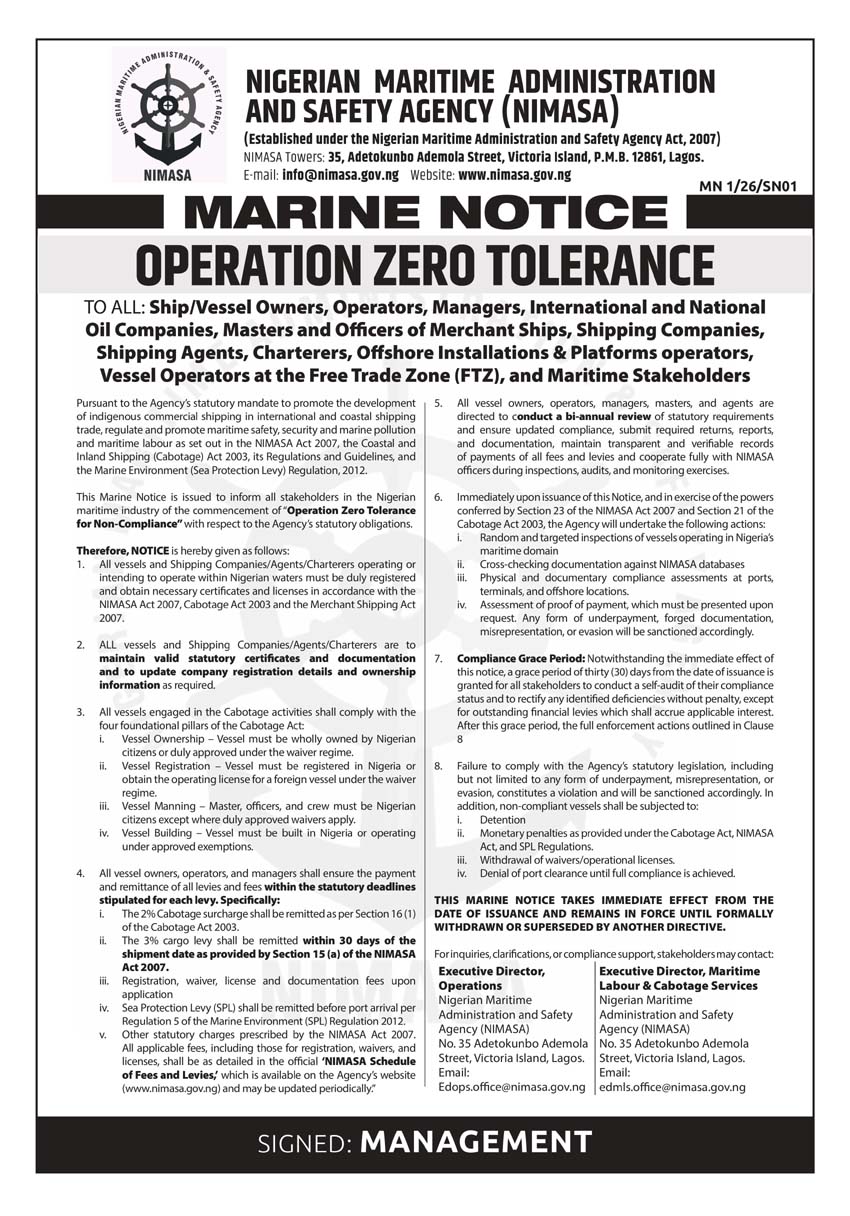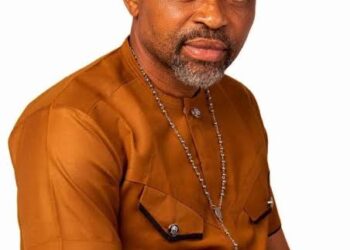About two weeks after it received the final draft of the controversial Maritime Security Agency Bill, the House of Representatives last week passed the Bill, even as industry operators expressed shock and dismay.
Shipping Position Weekly had reported exclusively last week that the Bill alongside three others; namely: Ports and Harbours Bill, Maritime Zone Bill and the Chartered Institute of Nigeria Bill had already been tabled before the lower chamber for considerations.
And confirming our exclusive story in a grand style, the lower chamber gave the last of the four Bills expedited hearing because of what a member of the committee explained as the need to give preference to executive bill. “You know that the three other bills are private members bills, while this bill is an executive bill”, he stated.
Against expectations of most maritime sector stakeholders, the lawmakers last Tuesday (March 16, 2010) passed the controversial Maritime Security Agency bill into law awaiting a likely concurrent passage at the Senate.
But some of the legislators who are members of the House committee on marine transport and who spoke to Shipping Position Weekly on condition of anonymity gave insights into why the lawmakers took the position that they took.
One of them explained that the management of Nigerian Maritime Administration and Safety Agency (NIMASA) practically went to sleep after the public hearing at the National Assembly, ignoring the persistent request of the committee’s chairman, Honourable Ifeanyi Ugwuanyi that NIMASA and indeed other stakeholders who made presentations should also furnish the committee with documentary evidences.
“The chairman repeatedly told stakeholders to assist us to do a fair and thorough job by furnishing the committee with documents and written position papers, many did not do it, we still sent reminders, but very few replied”.
“I expect that NIMASA which the new agency is seeking to strip of some statutory functions would rise up to the occasion immediately, but I am not aware of any further serious pressure on the committee”, he disclosed.
Shipping Position Weekly also learnt that the marine transport committee found loophole in the presentation of both the then- permanent secretary, federal ministry of transport, Mr Femi Olayisade who represented the then-minister, Alhaji Isa Bio.
Another member of the committee quoted the permanent secretary as submitting that at the moment, no agency is performing maritime security functions, even as he also faulted the seemingly clever position of the director general of NIMASA, Mr Temisan Omatseye who allegedly expressed sympathy, loyalty and preference for existing, but ad-hoc memorandum of understanding between NIMAS and the Nigerian Navy.
“I had expected that NIMASA would come to the hearing to defend its statutory responsibility for maritime safety and security as enshrined in its Act and not to be canvassing for a further boost of its MOU with the Navy”, he opined.
Yet another law maker disclosed that the biggest culprit for the need to create a separate agency for maritime security is the immediate past director general of NIMASA, Dr Ade Dosunmu. He blamed Dosunmu for lack of proper understanding of the roles of the agency when he assumed office.
“He came in as DG in very controversial circumstances without being fully prepared for the office. I am aware that his attention was called to the consistent failure to do anything about maritime security, but either because he had no idea or he just wasn’t interested”, the lawmaker alleged, even as he pointed out that NIMASA had other aspects of its statutory duties on the burners, but ignored security. “NIMASA had its imprints in Shipping Development, Maritime Labour, Cabotage, a semblance of safety and even marine pollution and so on, but nothing on security”, he stressed.
Shipping Position Weekly also learnt that it was after the failure of NIMASA to make any attempt that the then- moribund Presidential Implementation Committee on Maritime Safety and Security (PICOMSS) was resuscitated to start providing safety services for oil installations in the Niger Delta area. It was this that to the release of N1.7Billion to PICOMSS from NIMASA revenue.
Ironically, most industry operators were unaware of the passage of the Bill when our correspondent contacted them for responses. But one stakeholder who attended the public hearing told our correspondent last week that he had expected that NIMASA would assemble a team of maritime lawyers after the public hearing to dissect the bill again and come up with a more detailed NIM ASA-friendly position on the Bill.
If given concurrent passage by the Senate, the new agency will take away one third of NIMASA’s three percent of gross freight earnings on all international inbound and outbound cargo from ships or shipping companies operating in Nigeria.













Discussion about this post